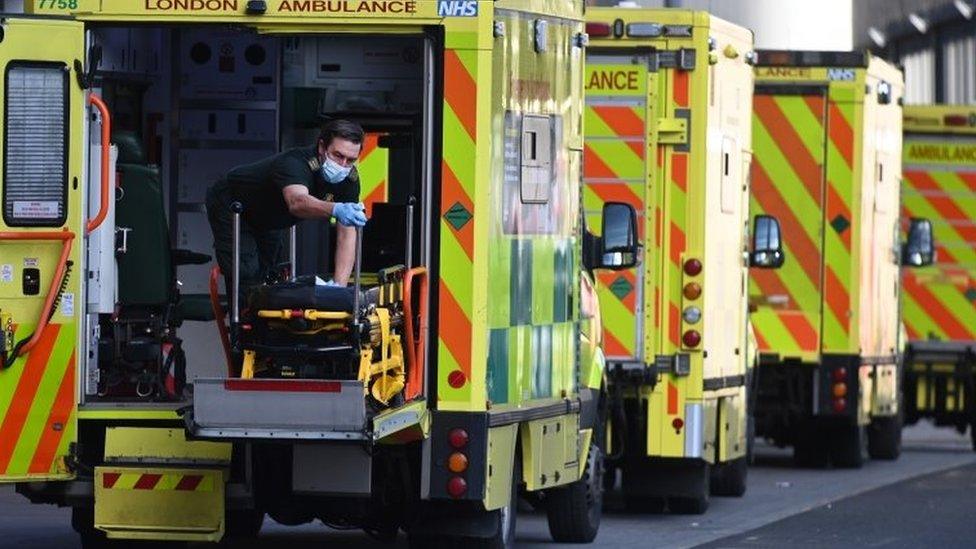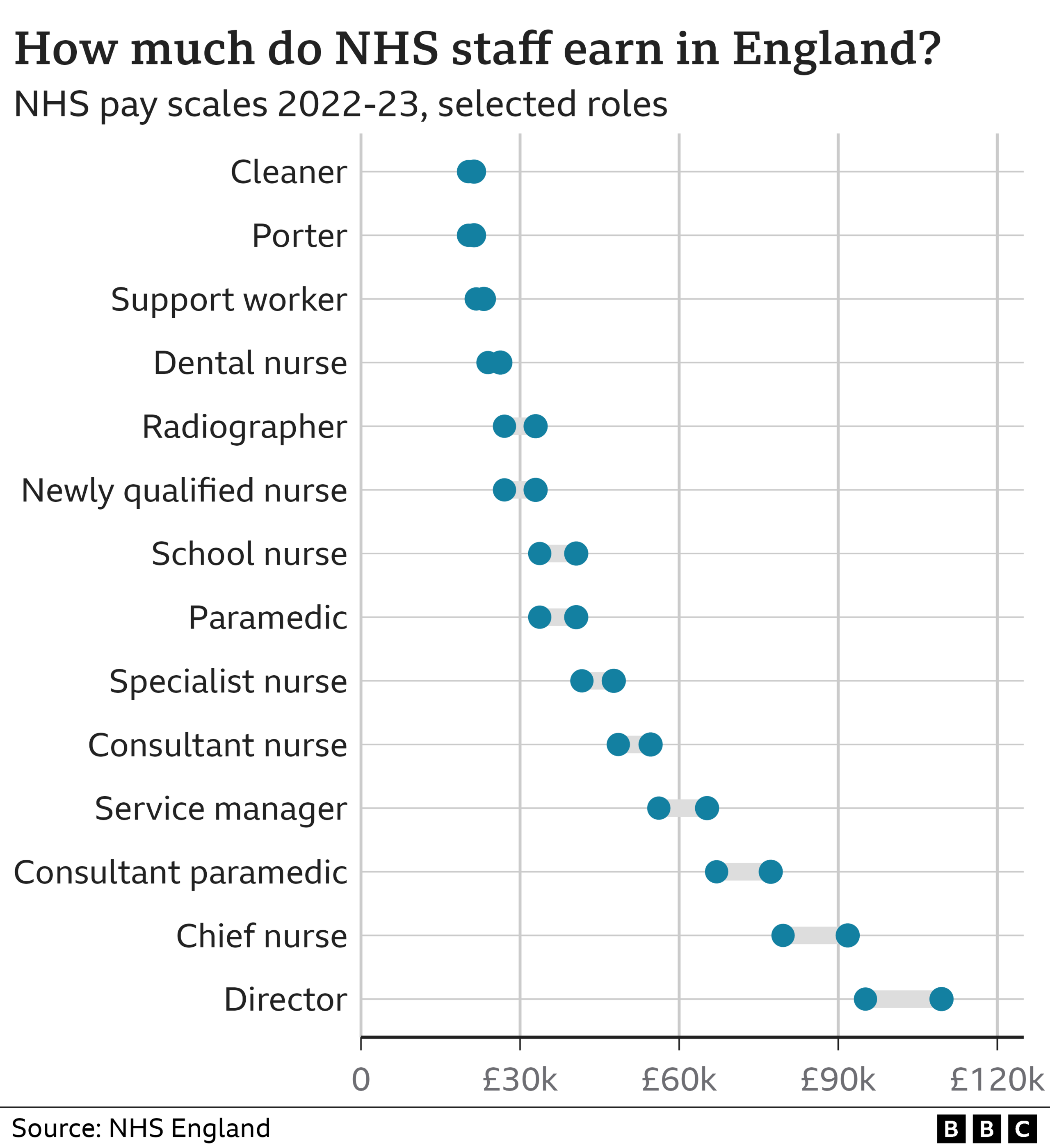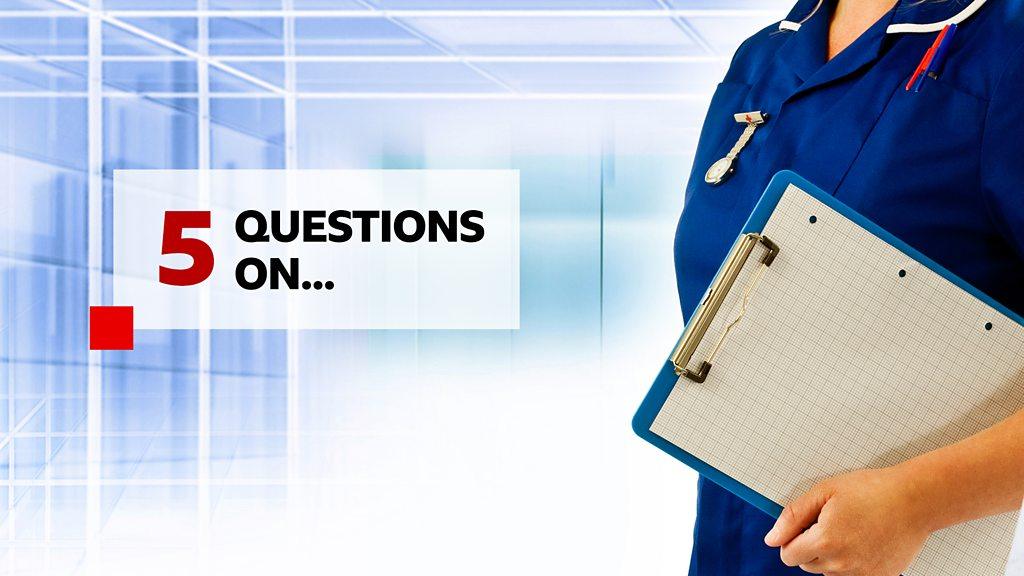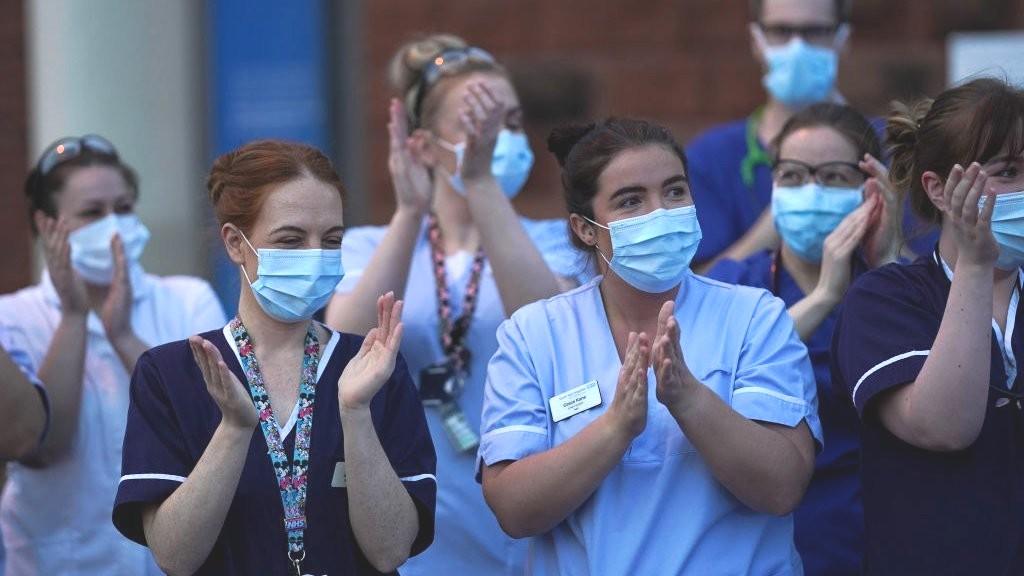Ambulance staff in England vote for strike action
- Published
- comments

Members of two unions representing ambulance staff have voted for strike action in England and Wales as the NHS pay dispute deepens.
Paramedics, call handlers and other staff at 10 ambulance services have backed a walkout in the ballots run by Unison and the GMB.
Strikes are likely to start before Christmas, but the rules requiring emergency care to be provided mean their impact will be limited.
Nurses are walking out in December.
Strikes on 15 and 20 December will affect a quarter of frontline services in England and nearly all of those in Wales and Northern Ireland.
Unions have suspended industrial action in Scotland while they consider a new pay offer.
GMB members at nine ambulance services and Unison members at five backed strikes.
Only the East of England service will not be affected.
Unison - the biggest union in the health service - also balloted members at more than 200 other NHS organisations, including hospitals, mental health teams and community services.
Alongside ambulance staff, they also represent cleaners, porters, nurses and health care assistants.
Only three NHS organisations backed strike action with the turnout too low at the others.

But a strike by Unison members will take place in Northern Ireland across ambulance and other NHS services on 12 December as turnout requirements are lower there.
Unison general secretary Christina McAnea said with ambulance services struggling to respond to calls - the response times are the longest since modern records began - staff there felt they had no choice.
Just last week, the Association of Ambulance Chief Executives warned patients were dying because of the "crippling delays".
Ms McAnea said until the government acts on wages, staff shortages would not be addressed and delays would continue.
But she added: "Patients will always come first and emergency cover will be available during any strike."

Have you experienced a long wait for an ambulance or at A&E? Get in touch.
WhatsApp: +44 7756 165803, external
Tweet: @BBC_HaveYourSay, external
Please read our terms & conditions and privacy policy

'Strike action in no-one's interests'
It will now be up to ambulance managers to negotiate with unions to decide on the exact level of cover.
Most at risk will be the lowest category 999 calls that do not require patients to be taken to hospital, and transport services between hospitals.
The five regional services that voted for strike action are London, North West, North East, Yorkshire and the South West.

Strike impact will be mixed

Patients around the UK will face widely different levels of care as a result of the looming NHS strikes in December.
Because of turnout rules for strike ballots to be valid some trusts wont see any disruption. But it will be a very different story at neighbouring hospitals and ambulance services affected by walkouts.
Ambulance staff staged four hour strikes over pay in late 2014 - emergency care was maintained but there were long waits for some cases including fractures and falls. Military backup was needed.
This time the NHS is under much greater strain and the walkouts may well be longer. The Royal College of Nursing has never taken this level of action before so the strikes will take the NHS into uncharted territory.
Crucially the precise definitions of the emergency care which will be maintained have not been finalised. Operations, appointments and even some cancer care will be postponed at a time of growing waiting lists and warnings of intense winter pressures.
While talks progress in Scotland with strike calls suspended there appears to be deadlock in the UK's other nations.

The announcement of the ballot comes as the Royal College of Nursing announced which hospitals and other NHS services will be affected by its strike on 15 and 20 December.
Nurses at a quarter of NHS trusts in England will be involved, along with nearly all services in Northern Ireland and Wales.
It will affect leading cancer centres and children's hospitals, including London's Great Ormond Street Hospital.
The other two main ambulance unions, GMB and Unite, are expected to announce the results of their strike ballots in the coming days.
All the unions have asked for above-inflation pay rises.
But the governments in England and Wales have given NHS staff an average rise of 4.75%, with staff guaranteed a minimum of £1,400.
England Health Secretary Steve Barclay said paying what was being asked for was "unaffordable" and he pointed out the award met the requirements of the recommendations of the independent NHS Pay Review Body.
"I'm hugely grateful for the hard work and dedication of NHS staff and deeply regret some will be taking industrial action - which is in nobody's best interests as we approach a challenging winter," he added.
Strike action has been suspended in Scotland after a fresh pay offer was made, which unions are consulting on.
Related topics
- Published25 November 2022

- Published29 November 2022

- Published21 June 2022
- Published7 January 2021
